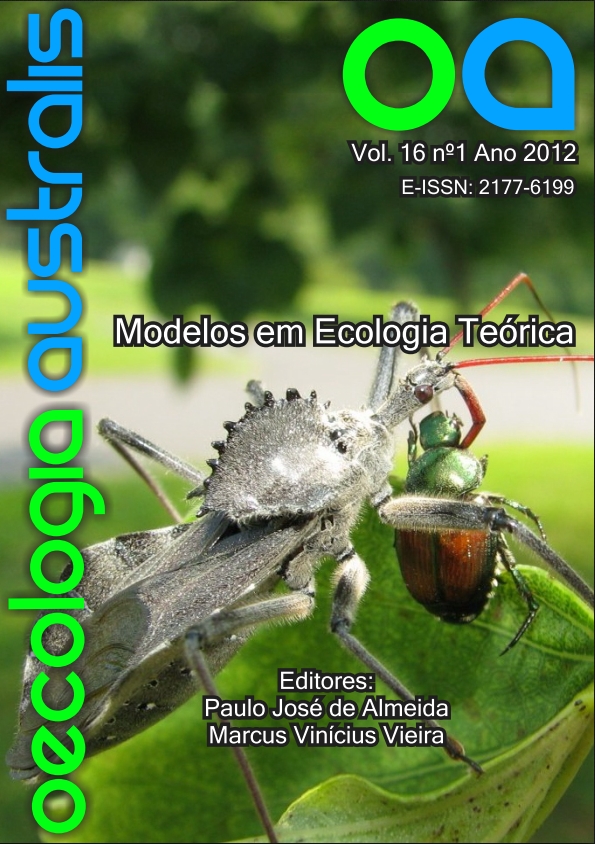EQUILÍBRIO DE NASH E ESTRATÉGIAS EVOLUTIVAMENTE ESTÁVEIS: A TEORIA DOS JOGOS NA ECOLOGIA DE POPULAÇÕES
Keywords:
Evolutionary Stable Strategies, The Prisoner's Dilemma, continuous game, discrete game, Pareto Optimal.Abstract
Mathematical models have been extensly used in applied sciences, such as for example in Economy or in Physics, comparred to the use of such tools in Ecology. The general
tendency to study the phenomena from an inductive point of view in Ecology, as contrasted to other sciences, still exists despite the fact that Ecology originally emerged as an idea of ‘Economy of Nature' and it serves as a source of common view points for establishing new theories: an economic science. The application of deductive mathematical tools and the parallels to economic theory has been sucessful in Population Ecology, as is the case of Evolutionary Stable Strategies (ESS), for example. When the concept of ESS was introduced, the economic theory that gave it its origins had alrady been well established and developed, called the Game Theory. The aim of this work is to review the Evolutionary Stable Strategies, through both economic and biological approach, attempting to recover the basic concepts that have founded these strategies and that are characteristic of a deductive manner of producing science. In the Game Theory, the approaches with both discrete and continous strategies can be used as a point of departure to study the biológical strategies subjected to natural selection, provide bases for new hypotheses, sampling designs or parametric studies. The modeling which led to the concept of ESS has triggerred some important improvements in Ecology, especially in the field of Population Ecology.


